
Finding a reliable x-ray center in Nagpur is crucial for accurate medical diagnosis and treatment. X-rays are an essential diagnostic tool that helps in identifying various medical conditions, from fractures to more complex internal issues. This guide provides detailed information about x-ray centers in Nagpur, their services, and what to expect during your visit.
Understanding X-ray Services
An x-ray center in Nagpur offers a range of services aimed at diagnosing various medical conditions. X-rays are a type of imaging test that uses small amounts of radiation to create images of the inside of your body. These images help doctors see bones, tissues, and organs, aiding in the diagnosis of medical conditions.
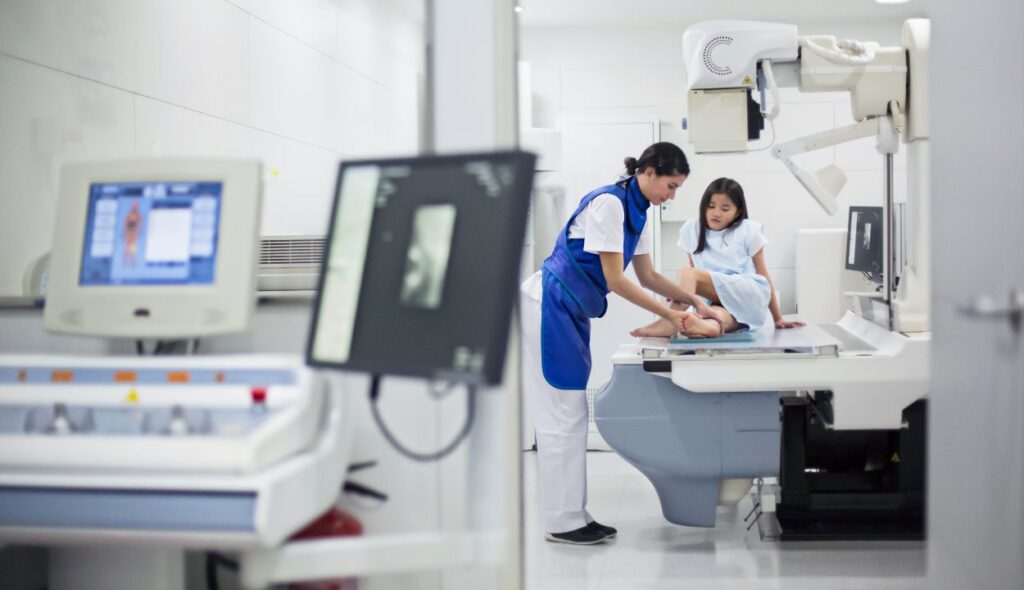
Why Choose an X-ray Center in Nagpur?
Choosing an x-ray center in Nagpur ensures that you receive high-quality imaging services close to home. The centers in Nagpur are equipped with advanced technology and staffed by experienced radiologists and technicians who ensure that you receive accurate and timely results.
Services Offered at an X-ray Center in Nagpur
An x-ray center in Nagpur typically offers the following services:
- Bone X-rays: To detect fractures, infections, and arthritis.
- Chest X-rays: To diagnose lung conditions, heart problems, and chest injuries.
- Abdominal X-rays: To identify issues in the stomach, intestines, and kidneys.
- Dental X-rays: To examine teeth, jawbones, and surrounding tissues.
- Fluoroscopy: A continuous x-ray beam is used to create real-time images of internal organs.
- Mammography: Specialized x-rays for breast examinations.
What to Expect During Your Visit to an X-ray Center in Nagpur
When you visit an x-ray center in Nagpur, the process is straightforward and usually quick. Here’s what you can typically expect:
- Registration: You will need to register at the reception and provide your medical history.
- Preparation: Depending on the type of x-ray, you may need to remove jewelry and wear a hospital gown.
- Procedure: The technician will position you appropriately and may ask you to hold your breath for a few seconds to get a clear image.
- Post-Procedure: After the x-ray, you can usually resume normal activities immediately.
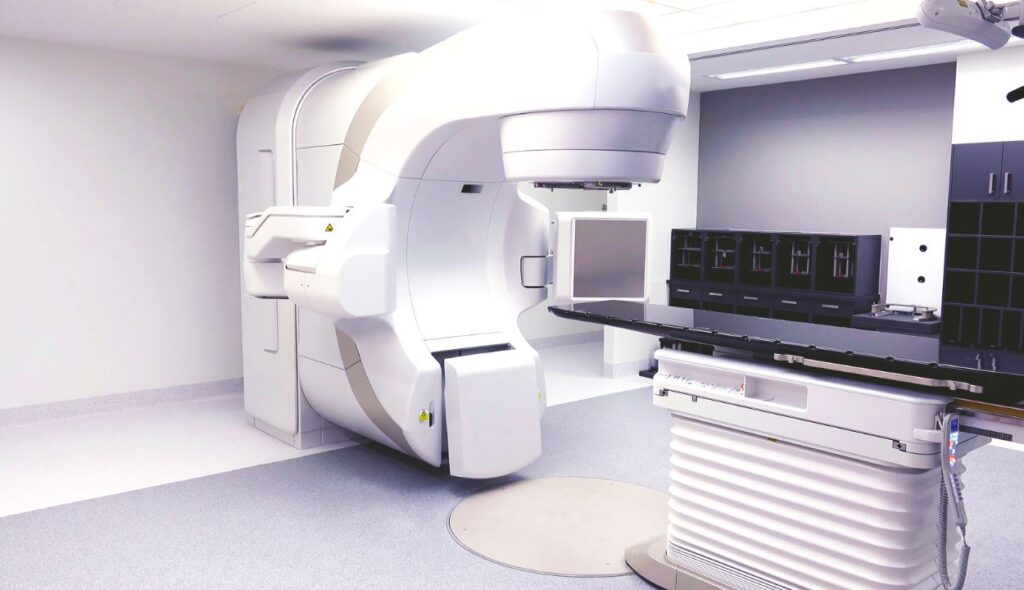
Safety Measures at an X-ray Center in Nagpur
Safety is a top priority at any x-ray center in Nagpur. These centers follow strict protocols to minimize radiation exposure. The amount of radiation used in x-rays is generally very low and considered safe. However, protective measures, such as lead aprons, are used to protect certain parts of the body from unnecessary exposure.
Choosing the Right X-ray Center in Nagpur
When selecting an x-ray center in Nagpur, consider the following factors:
- Reputation: Look for centers with good reviews and recommendations from other patients.
- Technology: Ensure the center uses modern and well-maintained equipment.
- Qualified Staff: The presence of experienced radiologists and technicians is crucial for accurate diagnostics.
- Convenience: Choose a center that is easily accessible from your location.
- Affordability: Check if the center offers services at reasonable prices and whether they accept your insurance.
Top X-ray Centers in Nagpur
While this guide does not promote any specific x-ray center in Nagpur, here are some general tips to find a reputable one:
- Ask your primary care doctor for recommendations.
- Search online for patient reviews and ratings.
- Visit the center’s website to learn more about their services and staff.
- Call the center to ask about their equipment and safety measures.
Importance of Timely X-ray Imaging
Getting an x-ray at an x-ray center in Nagpur is important for several reasons:
- Accurate Diagnosis: X-rays provide detailed images that help in the accurate diagnosis of various conditions.
- Early Detection: Many conditions, such as tumors and bone diseases, can be detected early with the help of x-rays.
- Guidance for Treatment: X-rays guide doctors in planning surgeries and other treatments.
- Monitoring Progress: X-rays are used to monitor the progress of treatments and the healing process.
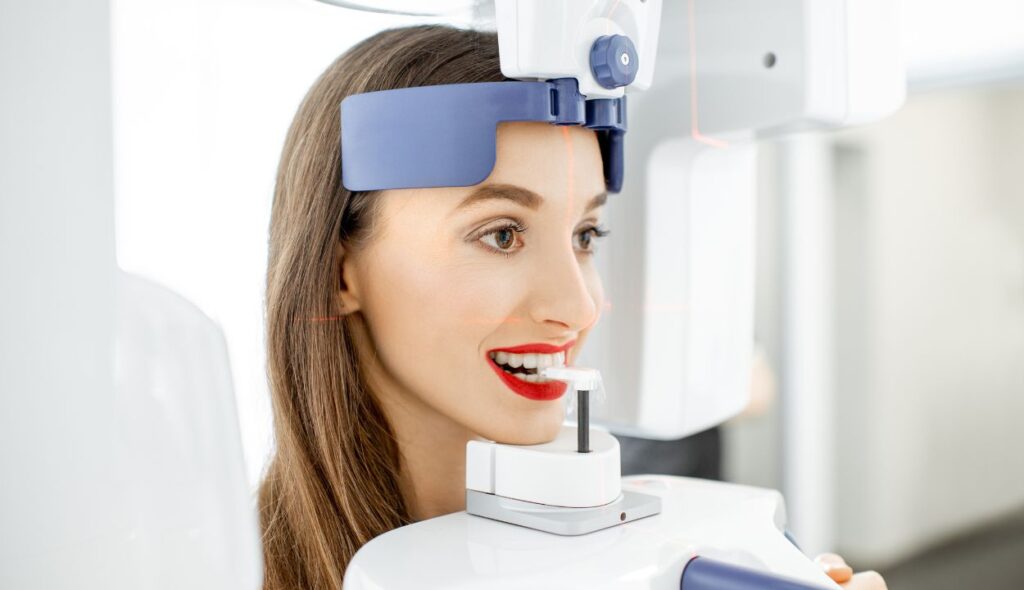
Preparing for an X-ray
Before visiting an x-ray center in Nagpur, you should:
- Inform the technician if you are pregnant or suspect you might be.
- Follow any specific instructions provided by your doctor or the x-ray center.
After the X-ray
After the x-ray, the images will be analyzed by a radiologist, who will then send a report to your doctor. Your doctor will discuss the results with you and plan the next steps in your treatment.
Common Conditions Diagnosed with X-rays
An x-ray center in Nagpur can help diagnose a wide range of conditions, including:
- Bone Fractures: Broken bones are easily detected with x-rays.
- Joint Issues: Conditions like arthritis can be diagnosed by examining joint images.
- Infections: Certain infections can be identified through changes in bone or lung tissues.
- Lung Conditions: Pneumonia, tuberculosis, and lung cancer can be detected with chest x-rays.
- Digestive Issues: Abdominal x-rays can reveal blockages, perforations, and other issues in the digestive tract.
Advanced Imaging Techniques
In addition to standard x-rays, some x-ray centers in Nagpur offer advanced imaging techniques such as:
- CT Scans: Combine x-rays taken from different angles to create cross-sectional images of the body.
- Ultrasound: Uses sound waves to create images of internal organs, often used in conjunction with x-rays for a comprehensive diagnosis.
Common Uses of X-rays
X-rays are one of the most commonly used imaging techniques in medicine, thanks to their versatility and effectiveness. Here are some of the primary uses of x-rays:
- Bone Fractures and Injuries: X-rays are essential for diagnosing fractures, dislocations, and other bone-related injuries. They provide clear images of bones, allowing doctors to assess the severity and plan appropriate treatment.
- Dental Issues: Dentists use x-rays to examine teeth and jawbones, helping to identify cavities, impacted teeth, and other dental problems. Regular dental x-rays are crucial for maintaining oral health.
- Chest Problems: Chest x-rays can detect various conditions affecting the lungs and heart, such as pneumonia, tuberculosis, lung cancer, and heart enlargement. They are often the first step in diagnosing respiratory issues.
- Abdominal Concerns: Abdominal x-rays help identify problems in the stomach, intestines, and kidneys, such as obstructions, stones, and infections. They are useful for diagnosing acute abdominal pain.
- Joint and Spine Issues: X-rays of joints and the spine can reveal conditions like arthritis, scoliosis, and degenerative disc disease. They are vital for assessing joint damage and planning surgeries.
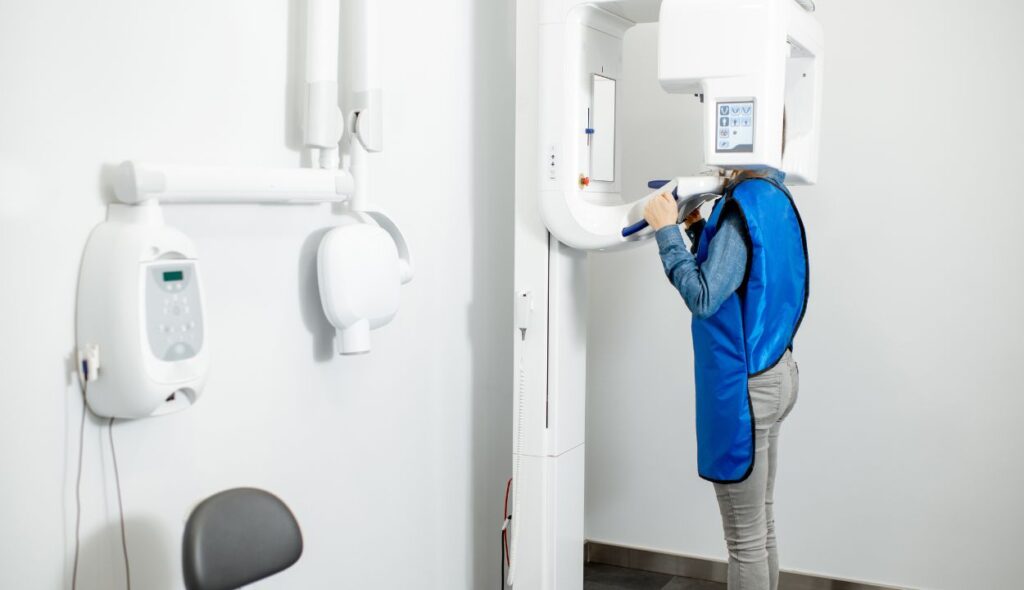
The Process of Getting an X-ray
The process of getting an x-ray is usually straightforward and involves the following steps:
- Preparation: You might be asked to change into a hospital gown and remove any jewelry or metal objects that could interfere with the x-ray images. For certain types of x-rays, you may need to follow specific instructions, such as fasting.
- Positioning: The radiologic technologist will position you on the x-ray table or have you stand against a special plate. You will be asked to stay still and sometimes hold your breath to prevent blurring of the images.
- Taking the X-ray: The technologist will operate the x-ray machine from behind a protective barrier. They will take one or more images, depending on the area being examined.
- Post-X-ray: After the x-rays are taken, you can usually resume normal activities immediately. The images are then reviewed by a radiologist, who will send a report to your doctor.
Safety and Risks of X-rays
X-rays involve exposure to a small amount of radiation, but the risks are generally low compared to the benefits. Here are some key points regarding the safety of x-rays:
- Minimal Radiation Exposure: The level of radiation used in most x-ray procedures is very low.
- Protective Measures: During the x-ray, protective measures like lead aprons and shields are used to protect parts of the body that are not being imaged, minimizing exposure.
- Pregnancy Precautions: If you are pregnant or suspect you might be, inform the technologist. While the risk is low, special precautions are taken to avoid exposing the fetus to radiation.
- Benefits vs. Risks: The diagnostic benefits of x-rays far outweigh the minimal risks. X-rays provide critical information that helps doctors diagnose and treat various conditions effectively.
Types of X-ray Equipment
Different types of x-ray equipment are used to capture images of various parts of the body. Some common types include:
- Conventional X-ray Machines: These machines are used for standard x-rays of bones, chest, and abdomen. They produce images on film or digitally.
- Fluoroscopy Machines: These provide real-time moving images, often used during procedures like barium swallows and catheter insertions.
- CT Scanners: Also known as CAT scanners, these machines use a series of x-ray images taken from different angles to create detailed cross-sectional images of the body.
- Mammography Units: Specialized x-ray machines designed for breast imaging, used primarily for the early detection of breast cancer.
- Portable X-ray Units: These are used in situations where patients cannot be moved to a radiology department, such as in intensive care units or during surgery.
Advanced Imaging Techniques
Beyond traditional x-rays, several advanced imaging techniques enhance diagnostic capabilities:
- CT Scans: They are particularly useful for imaging complex structures like the brain, chest, abdomen, and pelvis.
- MRI: Magnetic Resonance Imaging (MRI) uses powerful magnets and radio waves to create detailed images of organs and tissues. Unlike x-rays, MRI does not use radiation, making it safe for repeated use.
- Ultrasound: It is commonly used for monitoring pregnancies, examining the heart, and assessing abdominal organs.
- PET Scans: Positron Emission Tomography (PET) scans use a small amount of radioactive material to highlight areas of the body where there is high metabolic activity, such as cancerous tissues.
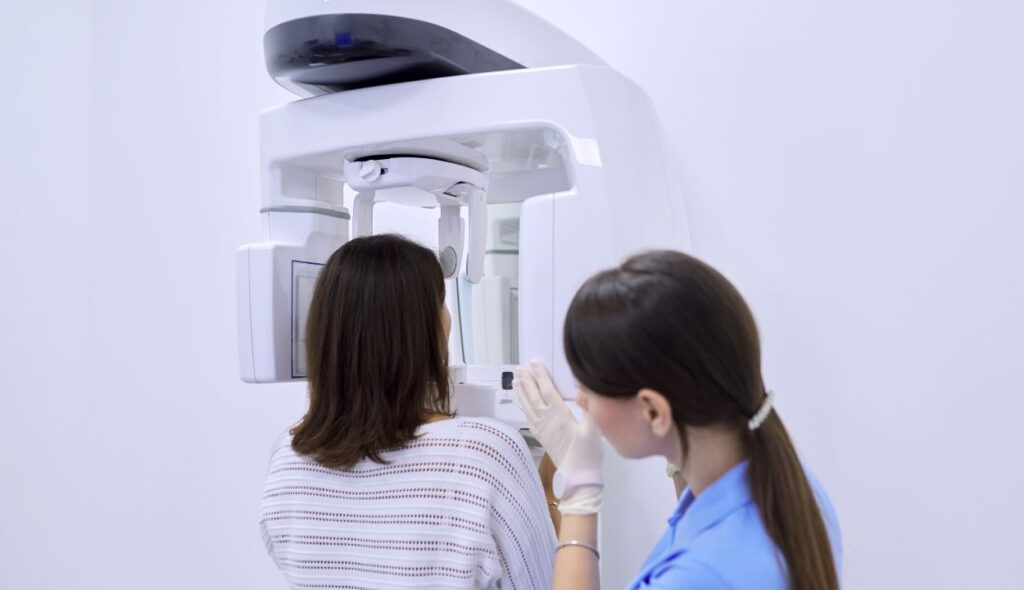
Preparing for an X-ray Appointment
To ensure a smooth x-ray appointment, follow these tips:
- Follow Instructions: If your doctor provides specific instructions, such as fasting or avoiding certain medications, be sure to follow them carefully.
- Dress Comfortably: Wear comfortable clothing that is easy to remove if necessary. Avoid wearing jewelry or clothing with metal fasteners.
- Bring Medical Records: Bring any relevant medical records, previous x-ray images, or a list of medications you are taking. This information can help the radiologist interpret your x-rays more accurately.
- Ask Questions: If you have any concerns or questions about the procedure, don’t hesitate to ask the technologist or your doctor.
Interpreting X-ray Results
After your x-rays are taken, the images will be reviewed by a radiologist, a doctor specialized in interpreting medical images. The radiologist will write a report detailing their findings, which will be sent to your doctor.
- Clear Images: X-ray images can show clear details of bones and certain tissues, helping to identify fractures, infections, and other abnormalities.
- Limitations: While x-rays are excellent for imaging bones, they are less effective for soft tissues like muscles and organs. Other imaging techniques, such as MRI or ultrasound, may be needed for a comprehensive evaluation.
- Follow-up Tests: Depending on the x-ray results, your doctor may recommend additional tests or imaging studies to get more detailed information about your condition.
When to Get an X-ray
X-rays are often ordered for various reasons. Here are some common scenarios where an x-ray might be necessary:
- Injury Assessment: If you have suffered an injury, such as a fall or accident, an x-ray can help determine if you have any fractures or dislocations.
- Persistent Pain: Chronic pain in areas like the back, joints, or chest may require an x-ray to identify underlying issues such as arthritis or lung problems.
- Dental Problems: Dental x-rays are crucial for detecting cavities, impacted teeth, and other oral health issues.
- Routine Check-ups: Regular x-rays can help monitor the progression of certain conditions, such as scoliosis or lung diseases, and ensure that treatments are effective.
Innovations in X-ray Technology
X-ray technology has advanced significantly over the years, leading to better imaging quality and increased safety. Some recent innovations include:
- Digital X-rays: Digital x-rays offer faster processing times and lower radiation doses compared to traditional film x-rays. They also provide the ability to enhance and manipulate images for better diagnostic accuracy.
- 3D Imaging: Advances in x-ray technology have led to the development of 3D imaging techniques, providing more detailed views of structures and aiding in complex surgical planning.
- AI in Radiology: Artificial Intelligence (AI) is being integrated into radiology to assist in the analysis of x-ray images, potentially increasing diagnostic accuracy and efficiency.
- Portable X-ray Devices: Portable x-ray machines allow for imaging in various settings, such as at the bedside in hospitals or in remote locations, making x-ray services more accessible.
Conclusion
An x-ray center in Nagpur plays a vital role in the healthcare system by providing essential imaging services for accurate diagnosis and treatment planning. Whether you need a routine check-up or have a specific medical condition, choosing a reputable x-ray center ensures you receive the best care possible. Always consult with your doctor and follow their recommendations for any imaging tests you may need.


